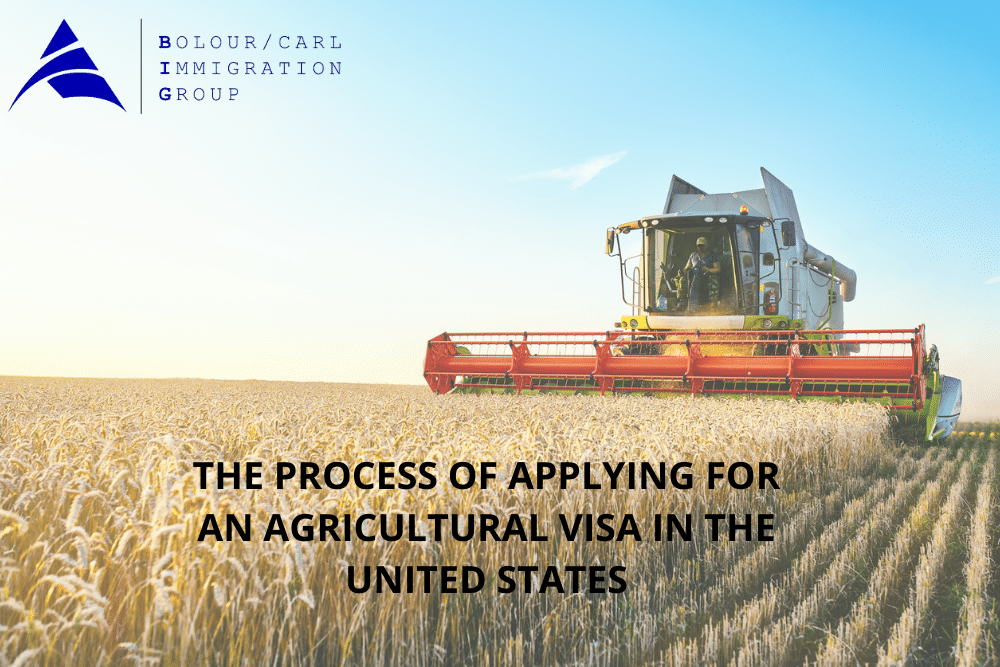

Visa Guides: Applying for Visas for Agricultural or Seasonal Workers is a critical guide for individuals seeking to work abroad in agriculture or seasonal jobs. Imagine yourself harvesting crops in a sun-drenched field, contributing your labor in a productive environment and experiencing a new culture— a fulfilling experience. This journey, however, often involves navigating a complex visa application process. This guide will outline the steps required, from research to submission, and assist you in tackling potential challenges, providing a roadmap to secure your agricultural or seasonal worker visa. This comprehensive guide will cover the prerequisites, the application procedure, common pitfalls, and valuable tips to enhance your application’s chances of success.
Understanding the Landscape of Agricultural and Seasonal Visas
Defining Agricultural and Seasonal Work Visas
Agricultural and seasonal worker visas are specifically designed for individuals seeking temporary employment in agricultural settings or industries with seasonal demands. These visas typically grant temporary permission to work in a particular country. This temporary permission often allows individuals to contribute to the labor requirements of seasonal industries, such as crop harvesting or tourism, and often serve as a stepping stone to further opportunities. Understanding the nature of these visas is essential before navigating the complex application process.
Common Challenges Faced by Applicants
Many individuals face difficulties in understanding the specific requirements and navigating the complexities of the application process. Misunderstanding requirements, inaccurate documentation, and failing to meet the specific standards can lead to application rejection. Applicants often grapple with the need to prove sufficient funds, validate the job offer, and meet the stringent health and character requirements. A lack of clarity and guidance during this process can be highly frustrating. This guide is designed to address these crucial challenges and equip applicants with the knowledge they need.
Researching Visa Requirements by Country
Analyzing Country-Specific Regulations
Countries have unique regulations for agricultural and seasonal worker visas. The specific requirements will vary greatly, depending on the country in question, the industry, and the specific job offer. Researching the precise guidelines is crucial to a successful application. Every country has its own regulations, which are constantly evolving. Applicants must be diligent in researching the updated guidelines from official government sources. Understanding this aspect will lead to a well-informed approach to the process, minimizing risks of errors.
Considering Seasonal Work Permits and Visa Types
Within the broader category of work visas, several sub-categories are available, each with its own set of rules and regulations. It is essential to understand what specific permit or visa type applies to the intended work and location. Some nations may have different categories for seasonal or temporary workers based on the nature of the agricultural work.
Preparing Essential Documentation
Gathering Required Documents
Thorough preparation of all necessary documentation is essential. Documents often include a valid passport, proof of financial stability, a signed contract with the employing agency, and proof of medical insurance. Employers are responsible for providing suitable accommodation. Ensuring all these documents are correctly prepared and in order reduces the risk of complications and speeds up the process. Specific documentation requirements vary based on the specific country or region.
Verifying and Validating Documents
Verifying and validating documents is a crucial step. Applicants must ensure that all documents are authentic, accurate, and up-to-date. Failing to meet these standards will affect chances of getting the visa. Consult with legal professionals or experts when unsure about the documents to avoid mistakes during submission.
Navigating the Visa Application Process
Understanding the Application Procedure
Applicants need to familiarize themselves with the official application process. Understanding application procedures, deadlines, fees, and required forms ensures smooth navigation through the system. Each step must be carefully followed to maintain compliance and facilitate the application’s progression. The application process might involve submitting forms, providing supporting documents, and attending visa interviews. Be meticulous throughout the entire process.
Addressing Potential Obstacles in the Process
Potential obstacles like delays or rejection often occur. Understanding why applications might be rejected will provide valuable insights to avoid future mistakes. Seeking guidance from legal professionals or experts will help ensure that the application is as efficient and effective as possible.
Leveraging Resources and Support
Utilizing Government Resources
Utilize official government websites for the most current information and accurate details. Official sites are usually the best sources for regulations, guidelines, and fees. These sources often provide contact information for relevant departments to aid in applications.
Consulting Immigration Consultants
For complex or challenging cases, seeking advice from immigration consultants is highly recommended. Consultants can provide expert assistance in navigating the complexities of the application process and help in addressing potential challenges in accordance with the respective regulations. They can help tailor strategies for a specific application.
Preparing for the Interview
Common Questions During the Interview
Prepare for potential questions during the visa interview. Questions about your work experience, financial resources, and travel plans are typical. Interview preparation allows individuals to present a comprehensive understanding of themselves, building confidence during interactions with authorities.
Managing Interview Anxiety
Managing interview anxiety is important. Practicing the answers to anticipated questions can ease the tension during the interview. Remaining calm, well-prepared, and respectful during the interview significantly improves the chances of a successful outcome.
Maintaining Compliance and Documentation
Adhering to Legal Requirements
Adherence to the specific requirements is critical for a successful application. Regulations and guidelines are continually reviewed and updated. Ensure all relevant documents align with the most current guidelines.
Tracking the Application Status
Tracking the status of your application is essential to remain informed of progress. This allows for early intervention and resolution of any potential complications.
Tips for Success
Planning Ahead
Start your research and planning well in advance. The process can take time to complete. Proactive planning will allow for better execution.
Seek Professional Advice When Needed
Seeking professional advice, especially when dealing with complex procedures, is crucial for successful outcomes. Consult qualified experts for personalized support. It’s often helpful to seek advice from people who have successfully navigated the process.
Applying for agricultural or seasonal visas involves several aspects that often generate questions. Here are answers to some frequently asked questions to help you navigate the process.
Q: What are the crucial eligibility criteria for a seasonal worker visa?
A: The specific eligibility criteria vary by country. Typically, these include proof of the availability of agricultural or seasonal employment, a job offer from an authorized employer, proof of sufficient funds for your stay, a valid passport, and potentially proof of health insurance and qualifications for the job. This comprehensive documentation process ensures a genuine effort to comply with legal and regulatory procedures. Applicants should consult the specific rules and regulations set by the host country’s embassy to validate eligibility criteria.
Q: What are the common pitfalls that potential applicants should avoid?
A: Common pitfalls include inaccurate or incomplete applications, failure to provide all necessary documentation, submitting applications beyond the deadline, or ignoring the instructions of the host country’s embassy. Thorough preparation and timely submission of accurate documentation can prevent such pitfalls and enhance chances of approval. It is crucial to follow all guidelines to the letter to avoid potential rejection due to minor procedural errors.
Q: How can I prepare an effective application to maximize my chances of getting a visa?
A: A well-structured and comprehensively documented application significantly increases your chances of success. Thorough research of the required documentation will greatly help in this regard. Prioritize clear communication with the relevant authorities to ensure the entire application process proceeds smoothly. Carefully prepare each document and ensure it aligns with the standards expected. Seek advice from immigration consultants or use relevant resources for guidance.
In conclusion, securing a visa for agricultural or seasonal work demands meticulous planning and adherence to specific guidelines. By understanding the application process, requirements, and potential challenges, aspiring workers can significantly enhance their chances of success. This guide has provided a comprehensive overview; remember to consult the official embassy or consulate websites for the most up-to-date and precise information regarding the specific country you are targeting. For further assistance, you can contact a qualified immigration consultant. Apply now for your visa!